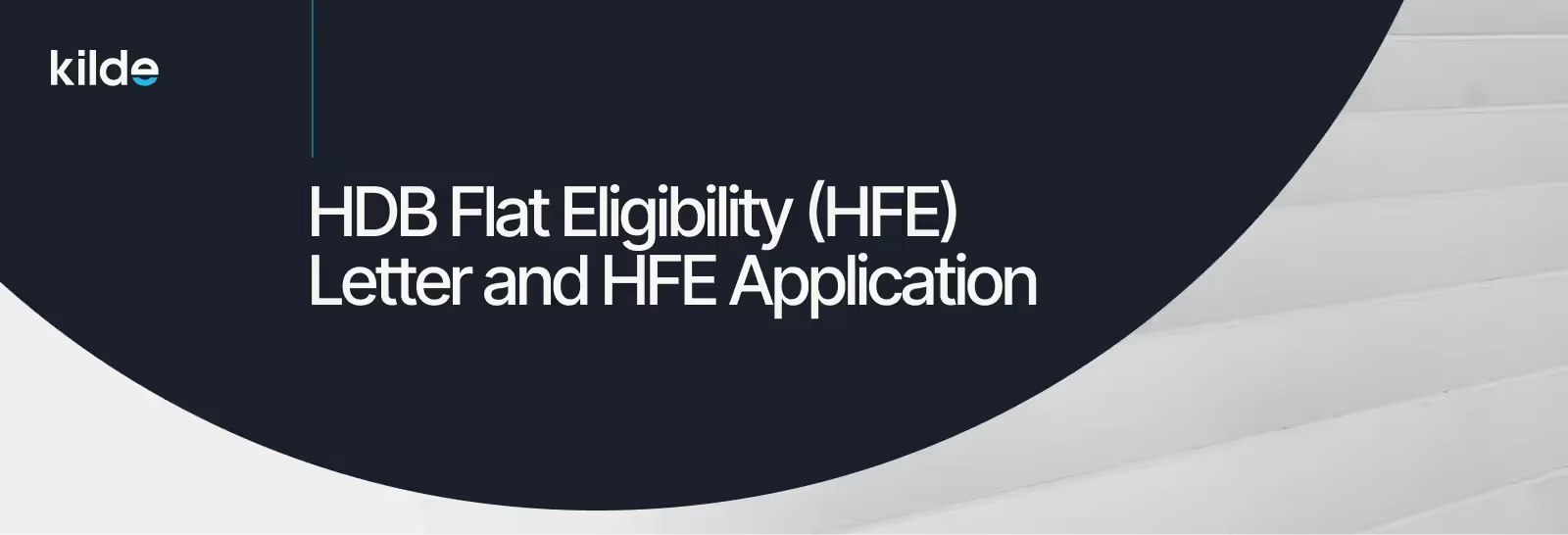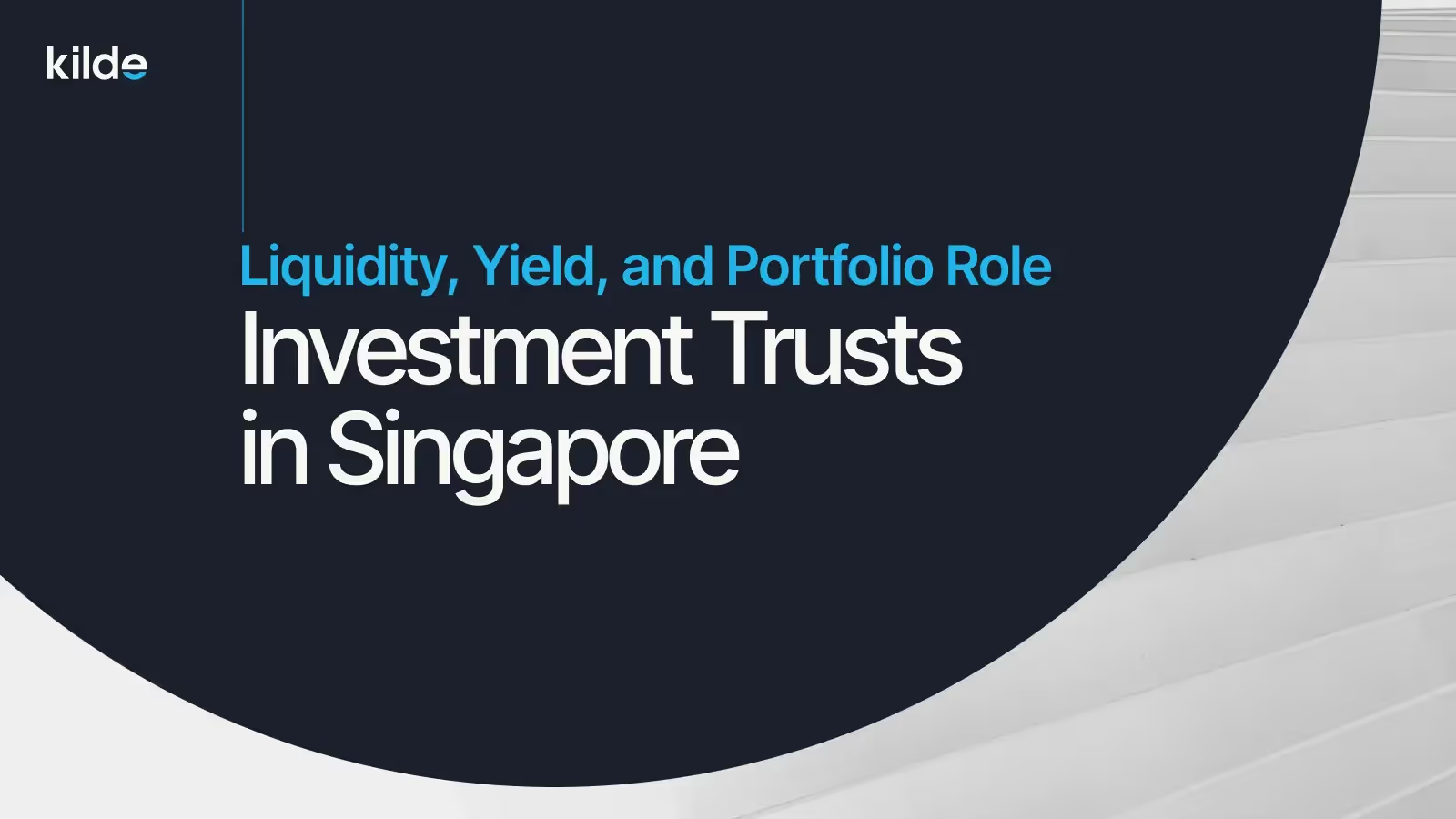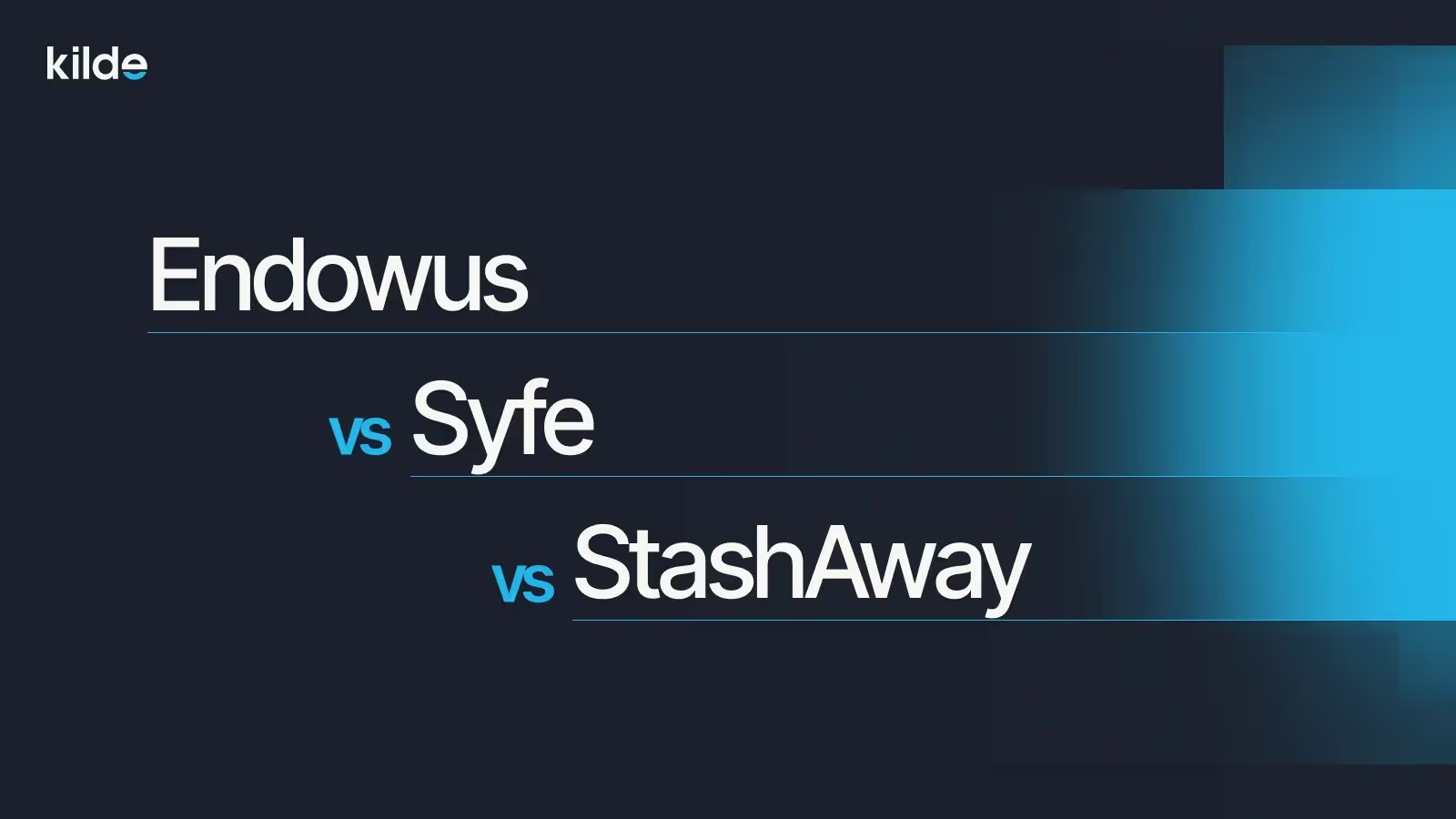Buying a home in Singapore is a significant achievement for many. The housing market in Singapore is distinct, with its own set of rules and regulations. It's crucial for potential investors to grasp these nuances before making a purchase. A critical step in acquiring a Housing & Development Board (HDB) flat, a common choice among Singaporeans, involves understanding the HDB Flat Eligibility (HFE) Letter and its application procedure.
I have created this guide which is designed specifically for novice investors and those looking to venture into Singapore's real estate market.
We will delve into the crucial aspects of the HFE letter, its application process, and the latest updates in 2025, including recent changes to HFE letter validity, income ceiling clarification, and upcoming policy reviews.
This will equip you with the necessary knowledge to navigate your property investment journey with confidence.
{{cta-component}}
What Is an HDB Flat Eligibility (HFE) Letter?
An HDB Flat Eligibility (HFE) Letter is an essential document provided by the Housing & Development Board (HDB) that evaluates your qualification to buy an HDB flat in Singapore. It acts as a validation that you fulfil the eligibility requirements established by HDB for flat ownership.
The application considers several criteria, including citizenship, age, income, and family nucleus. Citizenship is a key factor, as only Singapore citizens and permanent residents can buy HDB flats. The age of the applicant is another important consideration, with specific rules for different age groups. Income is crucial as it determines the financial capability of the applicant to afford the property. The family nucleus, which refers to the makeup of the applicant's family, can influence their eligibility for specific types of flats.
In conclusion, the letter is a vital document that aids prospective homeowners in determining their eligibility to purchase a flat in Singapore. Grasping the nuances of this letter and its application process is crucial for anyone considering investing in Singapore's real estate market.
HDB HLE vs HDB HFE Letter: What’s the Difference?
When exploring the process of buying an HDB (Housing & Development Board) flat in Singapore, you will encounter two important documents: the HLE (HDB Loan Eligibility) letter and the HFE letter. Though their names are similar, they have different roles. I have prepared a table below that succinctly explains their differences:
When is the HDB Flat Eligibility (HFE) Letter Required?
The HDB Flat Eligibility (HFE) Letter is a crucial document required at different stages depending on whether you are buying a new or resale flat.
Government Policy Reviews in 2025
The Singapore government is currently reviewing the BTO income ceiling and minimum age for singles buying new flats.
These policies may be adjusted to expand access, but only when flat supply is sufficient.
Keep an eye on HDB announcements for updates in the coming months.
If I am Buying a New HDB Flat (BTO, SBF, OBF)
For BTO (Build-To-Order) flats, you will need the HFE Letter before the balloting process. This means you must have the letter ready when you submit your application for a new BTO flat.
For SBF (Sale of Balance Flats), you will need the letter before your selection appointment. This is the appointment where you choose your flat from the available units.
For OBF (Open Booking of Flats), you will need the letter before your booking appointment. This appointment is when you book your chosen flat.
If I am Buying an HDB Resale Flat
For resale flats, you will need the HFE Letter before exercising the Option to Purchase (OTP). The OTP is a legal document that gives you the exclusive right to buy the flat within a specified period.
Note: While there's no income ceiling to purchase a resale flat, ceilings still apply if you intend to use CPF housing grants or take an HDB loan. For example, to qualify for the Enhanced CPF Housing Grant, your household income must not exceed $9,000.
HFE Letter Validity
The HFE Letter is valid for 9 months from the date of issue. This extension was implemented by HDB in November 2023 to give buyers more time to complete their transaction process.
Once expired, the HFE Letter cannot be extended and applicants will need to submit a new application.
For new flats (BTO, SBF, OBF), the letter must remain valid until the flat is booked.
{{cta-component}}
How to Apply for the HDB Flat Eligibility (HFE) Letter
Here is how you can apply for the HFE Letter.
- Visit HDB's Official Website: Go to the e-Services section of the HDB website.
- Log in: Use your Singpass to access the HFE application form.
- Fill Out the Form: Provide necessary details such as income, family nucleus, and type of flat you are interested in.
- Submit the Application: Review your application and submit it online.
- Wait for Approval: HDB will process your application and issue the HFE Letter if you meet the eligibility criteria. You can monitor your HFE application status via keeping a lookout on your SMS. You will receive a text message if you need to submit more documents for review, or if your HFE letter is ready.
Tip: It's advisable to apply for your HFE Letter at least 15 working days before a BTO or SBF launch, as processing times may vary during high-traffic periods.
The eligibility criteria for obtaining an HFE letter is as follows:
Note: Income ceilings do not apply to resale purchases unless the buyer is applying for CPF housing grants or an HDB loan. Data accurate as of August 2025. For the latest information, visit HDB’s income guidelines.
How HDB Assesses Income (2025 Update)
HDB assesses your average gross monthly household income over the 12 months prior to the assessment month, excluding irregular income like bonuses or AWS.
For example, if you apply for the HFE letter in August 2025, HDB will consider your income from July 2024 to June 2025.
Note: Irregular payments such as bonuses, annual wage supplements (AWS), and unearned income are excluded from this assessment.
HDB HFE Application: What Happens After I Apply for the HFE Letter?
After applying for the HFE Letter, you can begin exploring financing options for your HDB purchase. There are two primary types of loans available for financing your HDB property.
HDB Loan: An HDB loan is a housing loan provided by the Housing & Development Board. It offers several advantages, such as lower interest rates and more lenient eligibility criteria compared to bank loans. To apply for an HDB loan, you need to obtain an HDB Loan Eligibility (HLE) Letter, which confirms your eligibility for the loan and specifies the loan amount you can borrow. The HLE Letter is typically obtained after obtaining the HFE and before booking your flat.
Bank Loan: Alternatively, you can finance your flat purchase with a bank loan. Bank loans may offer more flexibility in terms of loan features and repayment options. However, they generally come with higher interest rates. Before applying for a bank loan, you should obtain an Approval-in-Principle (AIP) from the bank. An AIP is a conditional approval based on your financial situation and indicates the loan amount you may be eligible for.
It is important to carefully consider your financing options and choose the loan that best suits your financial situation and preferences.
You should also ensure that you meet the eligibility criteria for the loan you intend to apply for. Proper financial planning and research can help you make an informed decision and secure the financing you need for your purchase.
Financing Your HDB Purchase with an HDB Loan
- Check Loan Eligibility: Ensure you meet the criteria for an HDB loan, including income and creditworthiness.
- Apply for HDB Loan Eligibility (HLE) Letter: After obtaining the HFE, you can apply for a HLE Letter. This letter confirms your eligibility for an HDB loan and the loan amount you can borrow.
{{cta-component}}
Financing Your HDB Purchase with a Bank Loan
Obtain Approval-in-Principle (AIP): If you plan to finance your flat with a bank loan, you should obtain an Approval-in-Principle (AIP) from a bank. This is a conditional approval based on your financial situation.
Which Type of Loan Should You Apply For?
I believe that each of the two loans has its own list of pros and cons. Here is a quick comparison between the two based on interest rates, loan amounts, and flexibility of the respective loans.
Interest Rates: HDB loans typically offer lower interest rates compared to bank loans. HDB loan interest rates are fixed at 0.1% above the prevailing CPF Ordinary Account (OA) interest rate, which is currently 2.5% per annum (as of August 2025), making the HDB loan interest rate 2.6% per annum, as it is pegged at 0.1% above the CPF OA rate.
Bank loan interest rates, on the other hand, can be fixed or variable and are generally higher than HDB loan rates.
Loan Amount: The maximum loan amount you can borrow may differ between HDB loans and bank loans. HDB loans have a loan limit based on factors such as the flat type and your income. Bank loans may offer higher loan amounts, but this is subject to the bank's assessment of your financial situation.
Flexibility: Bank loans may offer more flexibility in terms of loan features and repayment options compared to HDB loans. Bank loans may allow for partial prepayments or refinancing options, which can be beneficial if you want more control over your loan.
Final Thoughts
Understanding and navigating the HFE Letter and its application process is a vital part of your homeownership and property investment journey in Singapore.
With the information provided in this guide, I hope that you are now better equipped to make informed decisions and progress towards securing your ideal home.
For those seeking alternative investment opportunities beyond traditional property investments, Kilde offers a compelling platform. Kilde is an alternative investment platform that provides investors with access to investments in private debt, offering potential returns of up to 13.5% per annum.
Kilde is an asset management firm connecting accredited investors, family offices, and funds to investment-ready private credit deals in developed and emerging markets. As an originator, Kilde assesses and structures solutions for under-served consumer finance companies located in Asia, Eastern Europe, and Middle East and North America (MENA). Kilde lends at an average tenure of 36 months, with early redemption rights and monthly coupons to investors ranging from 10.5 - 13.5% annualized.
Kilde focuses on capital preservation, taking risk not on the underlying retail consumer but on lending companies. The debt instruments are secured by cash-generating receivables at an average LTV of 70%. Kilde deploys a proprietary machine learning technology to analyze historical collateral cash movements and credit risk. Kilde has maintained a 0.0% default rate since inception in 2019.
With that, I wish you all the best in your pursuit of purchasing an HDB flat. May this guide serve as a valuable resource as you navigate the process, and may you find success in securing your ideal home in Singapore.
Sources:
- https://www.hdb.gov.sg/
*KILDE PTE LTD (“Kilde”) is incorporated in Singapore (registration no. 201929587K) is licenced and regulated by the Monetary Authority Singapore and holds a Capital Markets Services Licence (CMS101016) and an Exempted Financial Advisor License under the Financial Adviser Act. The information provided in this marketing material is intended for “accredited investors” and “institutional investors” (collectively “qualified persons”) only. This marketing material, and any information in this marketing material, or any documentation that Kilde provides in relation to this marketing material is provided without any representation or any kind of warranties whatsoever (whether express or implied by law).
This advertisement has not been reviewed by the Monetary Authority of Singapore.
















